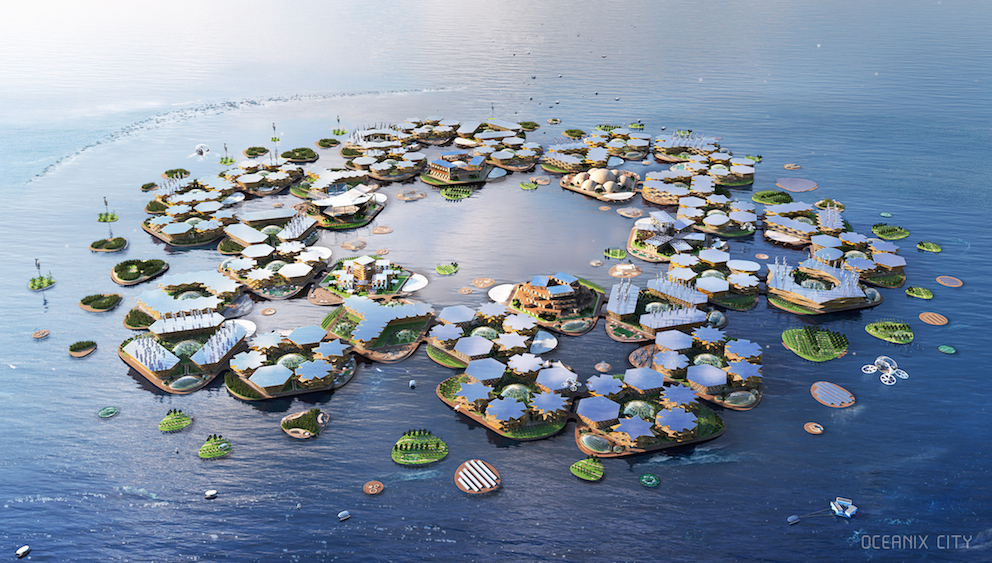
A UN-backed project to develop a floating city has been proposed for the seas off Busan in South Korea to pioneer a new mode of living amid climate-related sea-level rises.
Last week, the city government signed an agreement with Oceanix, a company founded by Danish architect Bjarke Ingels Group, and UN-Habitat.
The plan is to build a city made from hexagonal modules that would be stable enough to resist a category five hurricane.
The aim is to have the first platforms in the water by 2025, reports Business Insider. Although the size of the city’s first iteration has not been determined, the cost is expected to be in the region of $200m.
According to media reports, the plan is to assemble the city over 75ha with an initial population of 10,000. The hexagons would be grouped around a central harbour and made up of “villages” of up to 1,650 residents.

Itai Madamombe, a cofounder of Oceanix told Insider that Busan was the best place to build the prototype city because it was home to one the world’s busiest ports, so local builders and engineers had experience of building along the water.
She said the idea would be “useful to all coastal cities around the world, and all coastal communities who are facing the challenge of sea-level rise”. Oceanix is in talks with at least 10 governments about building more floating cities, she added.
In Busan, her team will collaborate with local designers to tailor the prototype to the local environment. Oceanix plans to unveil the results of those efforts at a second UN roundtable in April 2022. After that, the team would start engineering the platforms and working its way through the approval process.
When Bjarke Ingels Group proposed the idea in 2019, it outlined a plan to make the city sustainable using floating reefs to grow shellfish and kelp, fresh water systems, aquaponic agriculture and rooftop solar panels (see further reading).
The floating city concept was discussed at a UN roundtable discussion in April 2019, attended by UN Deputy Secretary-General Amina Mohammed, Marc Collins Chen, the chief executive of Oceanix and Nicholas Makris, a professor at the MIT Centre for Ocean Engineering.
At that meeting Mohammed commented that floating cities could be part of an “arsenal of tools” for adapting population centres to climate change. She said: “Because of climate change, cities are increasingly at risk of flooding. In Bangkok, the ground on which some parts of the city stands is sinking by around two centimetres every year, according to some estimates, while sea levels in the Gulf of Thailand are rising.”
Further reading:
Comments
Comments are closed.











Building floating cities seems like a crazy idea to me. We suppose that it is intended to replace an existing city that is sinking, and the most logical, sustainable and cheap solution is to build the new city inland, it is not necessary to go very far, simply to reach the elevation +30 above sea level.